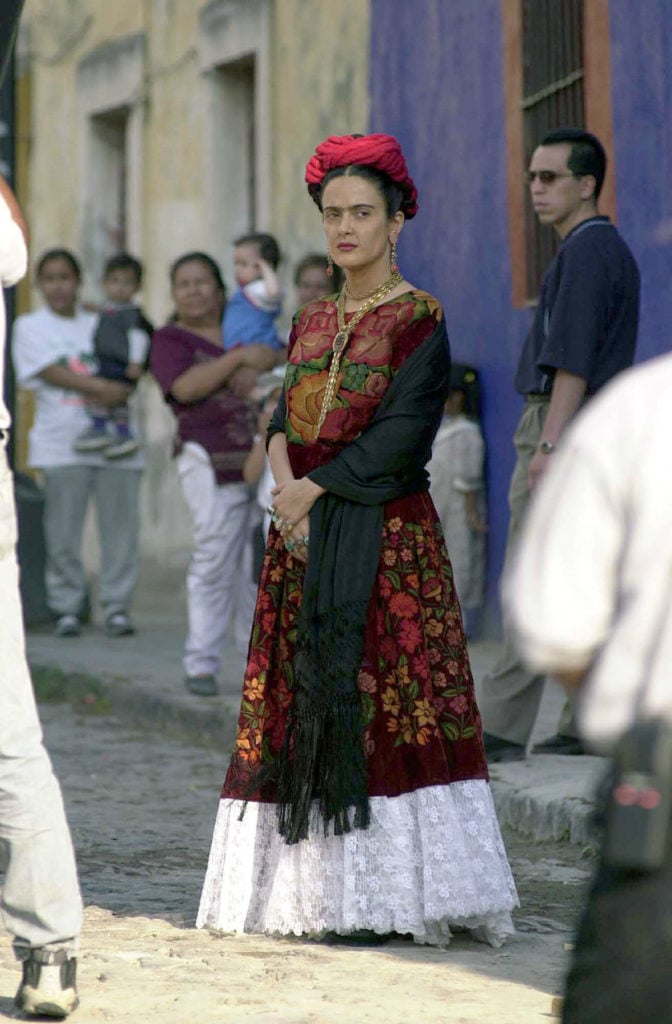Art World
Salma Hayek Slams the New Frida Kahlo Barbie as Much Less Authentic Than Her Own Portrayal
Kahlo "never tried to look like anyone else," writes the actress.

Kahlo "never tried to look like anyone else," writes the actress.

Henri Neuendorf

Mexican actress Salma Hayek took to Instagram to lash out against American toy manufacturer Mattel for its recently debuted Frida Kahlo-themed Barbie doll. The figurine is being sold as part of Barbie’s new “Inspiring Women” line, alongside likenesses of mathematician Katherine Johnson and pilot Amelia Earhart.
Hayek, who produced and starred in a movie about the Mexican painter that earned her an Academy Award nomination, called out Mattel’s representation of the artist as inaccurate. In her Instagram post, Hayek criticized Frida Barbie’s idealization of the artist: “Frida Kahlo never tried to be or look like anyone else. She celebrated her uniqueness. How could they turn her into a Barbie,” she wrote, adding the hashtag #bodyimage.
The Independent points out that the doll is substantially slimmed-down and bears no evidence of Kahlo’s physical disabilities sustained from childhood polio and a later bus accident. Additionally, the doll only hints at Kahlo’s most distinctive feature, her bristly eyebrows. Other critics have noted that the doll’s costume does not accurately represent the traditional Mexican peasant garments favored by the artist.
Hayek’s criticism of the new doll follows a stern rebuke from Kahlo’s descendants who have threatened legal action against Mattel for violating the artist’s image rights, which are reportedly owned by the artist’s great-niece Mara Romeo. For its part, Mattel insists that it secured permission to license the artist’s likeness from the Miami-based Frida Kahlo Corporation, which claims to have acquired the rights to Kahlo’s likeness from her niece Isolda Pinedo Kahlo.
The “Inspiring Women” collection is part of a larger “Barbie’s Shero” program, which this year used International Women’s Day to release prototype Barbies dedicated to Wonder Woman director Patty Jenkins and A Wrinkle in Time director Ava DuVernay, as well as Polish journalist Martyna Wojciechowska, Michelin starred chef Hélène Darroze, fencing champion Ibtihaj Muhammad, and others.
The Kahlo, Johnson, and Earhart dolls are the only ones actually for sale, at $29.99 a pop.
For her part, Hayek had used International Women’s Day to post to Instagram a still from her movie Kahlo, depicting the artist painting in a wheelchair, with an inspirational quote:
Interestingly, the Julie Taymor-directed Frida itself was controversial in Mexico, with critics saying that Hayek glamorized the artist. “She walks without limping, climbs the Pyramid of the Moon with agility, dances a kind of tango with energy and sensuality and drinks more than any man without the faintest trace of falling under the influence,” critic Carla Garcia noted at the time.